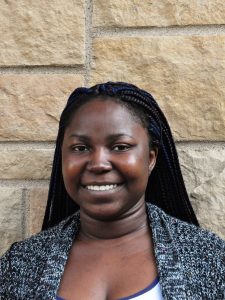
“Not to be racist but,” is a preface many people of color do not want to hear when you are about to make a comment. There is no need to defend yourself before you start a conversation. That is something you leave for the listener to determine. I, along with many other people of color, have heard this statement made once or more. Sometimes I think people are saying it to sound less offensive, but defending yourself ahead of time does not make an offensive comment any better.
Since November 2016, when Donald Trump won the presidential election, there has been a huge spike in hate crimes. According to Newsweek, a research study conducted by California State University’s Center for the Study of Hate and Extremism discovered that hate crimes against minorities and religious groups went up 20 percent after Donald Trump won the election. Many have been asking, “is this increase due to people being more confident? Or are these people influenced by the new president elected?” These questions have yet to be answered. One thing we all know, however, is that hate and racism have become increasingly evident in American society today. Events that happened this summer have been enough to make us know that this hate is everywhere, from Charlottesville to Fargo.
The Concordia community has done a good job of making sure there is inclusion and equality for all, regardless of your background. My problem, however, is the fact that many people tend to shy away from the actual problem. Once a talk on racism starts, many people become defensive, saying, “I am not racist, so I don’t think I should be having this conversation.” Being racist is not the problem — being ignorant and racist is, and that is the issue that has to be tackled.
Some people even go as far to say, “I have Black/Latino/Asian friends, so I can’t be racist.” This doesn’t change anything, and yes, you can be racist and still have diverse friends. Racism does not mean that you only stay with people of your own race. You can have a person of color as your roommate and still be racist. Talking about social issues constantly can help change the way we think about the world from our own personal bubble. Even if you are offended the first time, you will get corrected and this can help you another time. In order to help students expand their thinking and encourage them to tackle these social issues, a class about social justice issues should be part of Concordia’s curriculum and should be taught by professors who have personal and academic experiences with these issues.
To be able to “influence the affairs of the world,” we have to be informed about the issues of the world, not just nearby, but across the country we are all living in. Let us not just be passionate on MLK day, but after it avoid uncomfortable conversations and questions floating around. Like I have said before, never be afraid to ask questions when you are not sure, but always do your research and make sure stereotypes you have do not cloud your judgment. I can count how many classes I have had in college that spoke about racism or other various forms of discrimination. And most times these discussions were not part of the syllabus but just happened due to other topics at that moment. These examples highlight the fact that social justice issues are hardly ever included in the school curriculum. However, students can try to understand, be empathetic and speak out on social issues you know about but never tell the victims how to seek justice, because, as much as you think you understand, you can never fully know what it feels to walk down the street hoping you don’t get attacked because of how you look, or getting pulled over by a cop and hoping you come out of that conversation alive. So, next time, before you start that conversation, stop and think about what you know, versus what you think you know. Do your research without being biased, and talk to someone who understands and knows the subject of your conversation.
